Top 10 Tips: How to Optimize WordPress Website Speed and Performance
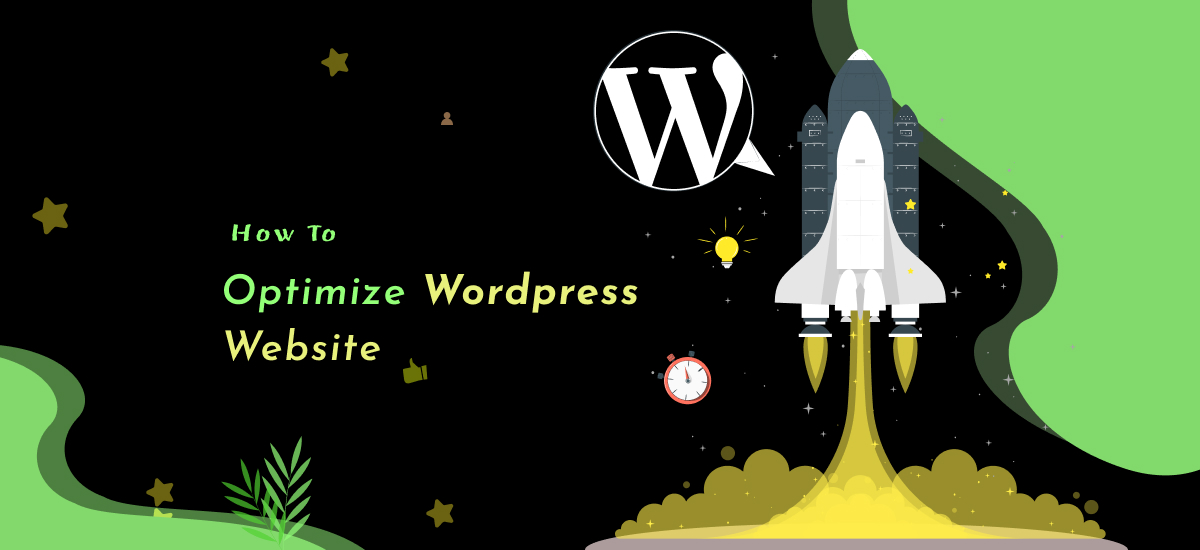
In the digital jungle, a slow website is like a sloth trying to win a marathon. It’s clunky and frustrating, and chances are, users will be gone before you can say “page load.” But fear not, WordPress warriors! With the right optimization magic, you can transform your sluggish site into a sleek, user-friendly speed demon.
In the vast universe of website development, WordPress stands as a stellar platform, powering over 40% of all websites on the internet. However, with great popularity comes the need for optimization. Ensuring your WordPress website performs at its peak is crucial for user experience, SEO rankings, and overall success. In this comprehensive guide, we will explore proven WordPress performance optimization tips to help you unlock the full potential of your website.
You Will Learn from this Blog:
- Introduction
- Understanding WordPress Performance
- Why does website performance matter?
- What Is WordPress Performance Optimization, and Why is it Important?
- WordPress Performance Optimization Tips
- Tools for Measuring Performance
- The Importance of Regular Maintenance
- Conclusion
- Faqs
Understanding WordPress Performance
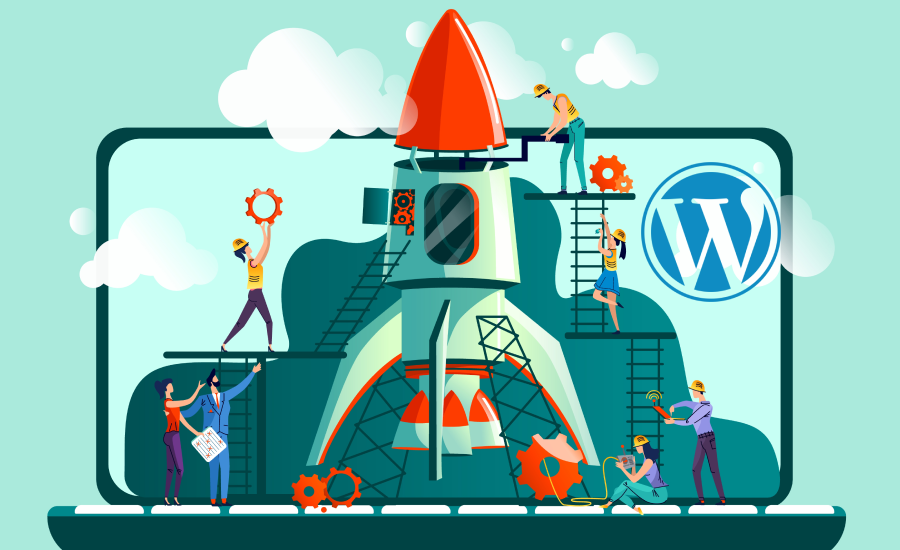
WordPress performance is a critical aspect of creating a successful and user-friendly website. Performance directly influences user experience, search engine rankings, and overall site functionality. Understanding the factors that contribute to WordPress performance is essential for website owners, developers, and administrators.
Why does website performance matter?
Website performance is not just about speed; it’s about creating a positive experience for your users, boosting your SEO, and improving the overall effectiveness of your website. By investing in performance optimization, you can unlock the full potential of your website and achieve your online goals.
Website performance matters because it:
- Makes users happy: Faster websites are more engaging and less frustrating.
- Boosts SEO: Search engines love fast websites, meaning higher rankings and more traffic.
- Increases conversions: A speedy site leads to more sales and leads.
- Saves money: Less server load means lower hosting costs.
- Improves security: Optimized code makes your website more secure.
How a slow website can impact user experience and SEO
A slow website can turn away visitors, increasing bounce rates and diminishing user satisfaction. This poor user experience directly affects SEO, as search engines prioritize faster sites in rankings. Slow-loading pages consume more crawl budget, potentially leading to overlooked content. Google considers page speed a crucial ranking factor, impacting a site’s visibility in search results. Core Web Vitals, focusing on user experience metrics, reward faster and more efficient websites. Prioritizing speed not only satisfies users but also secures a competitive edge in the SEO landscape.
What Is WordPress Performance Optimization, and Why is it Important?
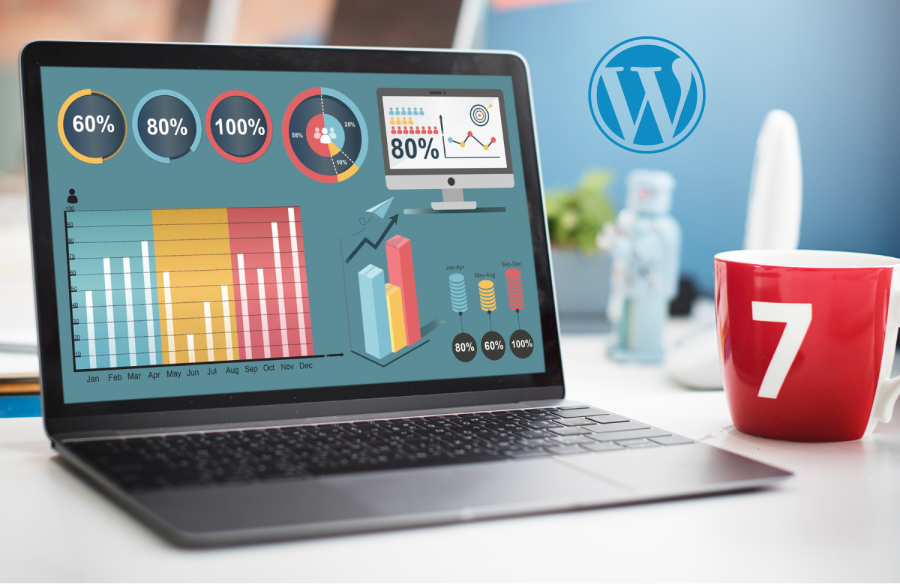
WordPress performance optimization refers to the process of enhancing and fine-tuning the speed, responsiveness, and overall efficiency of a WordPress website. The goal is to ensure that web pages load quickly, providing a seamless and positive user experience. Website performance is crucial for several reasons:
- User Experience: Visitors tend to leave a website if it takes too long to load. A slow website can result in a poor user experience, leading to higher bounce rates and lower engagement.
- Search Engine Ranking: Search engines, such as Google, consider page speed as a ranking factor. Faster-loading websites are often ranked higher in search results, leading to increased visibility and organic traffic.
- Conversion Rates: Faster websites generally have better conversion rates. Users are more likely to complete a desired action, such as making a purchase or filling out a form, if the website responds quickly and efficiently.
- Mobile Responsiveness: With an increasing number of users accessing websites on mobile devices, performance optimization is crucial for ensuring a smooth experience across various devices and screen sizes.
- Server Cost and Scalability: Optimizing performance can lead to reduced server load and resource usage, potentially lowering hosting costs. It also improves the scalability of your website, allowing it to handle increased traffic without a significant drop in performance.
WordPress Performance Optimization Tips
Implementing these WordPress performance optimization tips will contribute to a faster, more responsive, and user-friendly website.
Tip #1: Choose a Reliable Hosting Provider
The foundation of a high-performing WordPress site begins with a reliable hosting provider. Opt for a hosting company that specializes in WordPress hosting, offering features such as optimized servers, content delivery networks (CDN), and automatic backups.
Tip #2: Keep Your WordPress Core, Themes, and Plugins Updated:
Regularly updating your WordPress core, themes, and plugins is vital for security and performance. Developers constantly release updates to improve functionality, patch vulnerabilities, and enhance overall performance. Ensure that everything is up to date to benefit from the latest improvements.
Tip #3: Optimize Images and Multimedia
Large image and multimedia files can significantly slow down your website. Use image compression tools or plugins to optimize your media files without compromising quality. Additionally, consider lazy loading to defer the loading of off-screen images until the user scrolls to them.
Tip #4: Implement Caching
Caching involves storing static versions of your website’s pages to reduce server load and speed up loading times. Utilize caching plugins like W3 Total Cache or WP Super Cache to generate static HTML files, minimizing the need for dynamic page rendering with each visit.
Tip #5: Minify CSS and JavaScript Files
Reduce the size of your CSS and JavaScript files by minifying them. This process involves removing unnecessary spaces, line breaks, and comments without altering the code’s functionality. Several plugins, such as Autoptimize, can automate this optimization process.
Tip #6: Utilize a Content Delivery Network (CDN)
A Content Delivery Network distributes your website’s static content across multiple servers worldwide, reducing the physical distance between users and the server. This results in faster loading times for visitors, regardless of their geographical location.
Tip #7: Optimize Database Performance
Regularly clean and optimize your WordPress database by removing unnecessary data, revisions, and spam comments. Use plugins like WP-Optimize to automate this process and maintain a lean and efficient database.
Tip #8: Enable GZIP Compression
GZIP compression reduces the size of your website’s files before they are sent to the browser, resulting in faster page loading times. Most modern web servers support GZIP compression, and you can enable it through your hosting provider or use plugins like W3 Total Cache.
Tip #9: Choose a Lightweight Theme
Opt for a lightweight and well-coded theme to ensure faster page loading times. Avoid themes with excessive features and functionalities that you don’t need. A minimalist approach to design can significantly contribute to improved performance.
Tip #10: Limit External HTTP Requests
Minimize the number of external HTTP requests your website makes, as each request adds to the page load time. Reduce the number of external scripts, fonts, and stylesheets to the essentials, and consider hosting resources locally when possible.
Tools for Measuring Performance
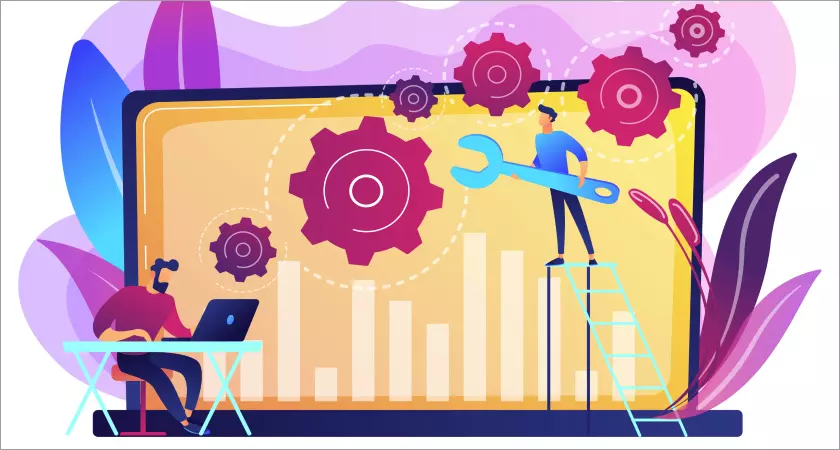
To conquer the speed demons plaguing your site, you need the right tools to measure its performance. Here are some top contenders:
- PageSpeed: Google’s free speedometer, grading your site’s mobile and desktop performance.
- GTmetrix: Deep-dive reports & waterfall charts, pinpointing bottlenecks for optimization.
- Pingdom: Global view of loading times, analyzing performance worldwide.
- WebPageTest: Test from various locations & configurations, even watch videos of your site loading.
- Lighthouse: Google’s all-in-one audit for performance, accessibility, best practices & SEO.
- WP Super Cache: Cache static content for lightning-fast loading.
- W3 Total Cache: Minify, lazy load & integrate CDN for ultimate optimization.
- Smush: Shrink images without quality loss, reducing page size & boosting performance.
Remember, measuring your website’s performance is just the first step. Use the insights gained from these tools to implement effective optimization strategies and unleash the full potential of your WordPress website!
The Importance of Regular Maintenance
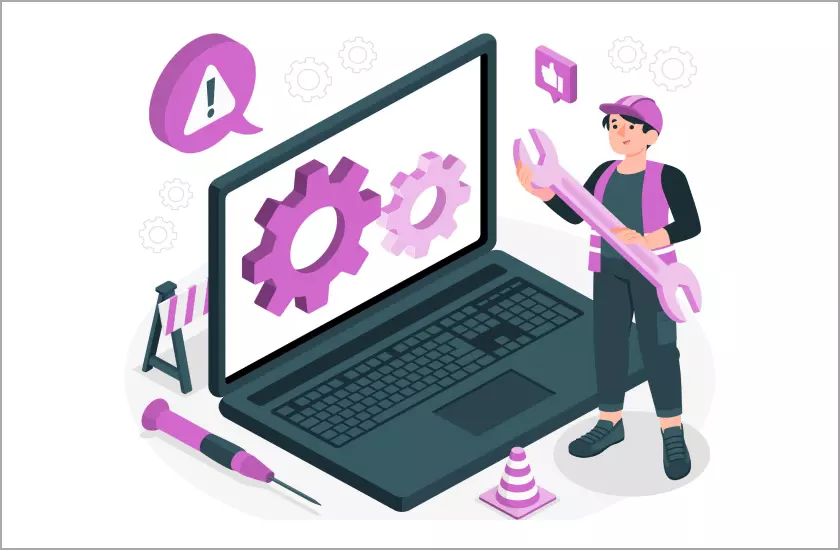
Imagine your WordPress website as a car. You wouldn’t just drive it until it sputtered to a halt, right? You’d get regular oil changes, tune-ups, and repairs to keep it running smoothly and safely. The same goes for your website. Regular maintenance is the secret weapon that keeps your WordPress site performing at its best, protecting it from threats, and ensuring it thrives in the ever-evolving digital landscape.
Here’s why regular WordPress maintenance is crucial:
1. Security Shield: WordPress, while powerful, is unfortunately not immune to vulnerabilities. Hackers constantly seek weaknesses to exploit, and outdated software or plugins are prime targets. Regular updates patch these vulnerabilities, acting like a sturdy shield against malicious attacks.
2. Performance Powerhouse: Over time, your website can accumulate digital dust like a cluttered attic. Unused plugins, bloated databases, and unoptimized files can slow down your site, frustrating users and harming SEO. Regular maintenance cleans up this digital clutter, keeping your website running like a well-oiled machine.
3. User Experience Utopia: A slow, clunky website is like trying to navigate through molasses. Users will get impatient and bounce faster than a kangaroo with a rocket boost. Regular maintenance ensures your website is responsive and user-friendly, and delivers a seamless experience that keeps visitors engaged.
4. SEO Sanctuary: Search engines like Google prioritize websites that are fast, secure, and up-to-date. Regular maintenance keeps your website in good standing with the search engine gods, boosting your ranking and increasing your visibility to potential customers.
5. Peace of Mind Palace: Knowing your website is secure, optimized, and performing at its peak is a priceless feeling. Regular maintenance eliminates the stress of unexpected crashes, security breaches, or performance issues, allowing you to focus on what you do best – growing your business or sharing your passion.
So, what does regular WordPress maintenance entail?
- Updates: Regularly update WordPress core, themes, and plugins to patch vulnerabilities and access new features.
- Backups: Create regular backups of your website to protect against data loss or security breaches.
- Security Scans: Run security scans to identify and address potential vulnerabilities before they become exploited.
- Performance Optimization: Optimize images, clean up databases, and utilize caching mechanisms to improve website speed.
- Broken Link Checks: Fix broken links to ensure smooth user navigation and prevent SEO penalties.
Remember: Regular maintenance doesn’t have to be a daunting task. There are numerous plugins and tools available to automate many tasks, making it easy to keep your website in tip-top shape.
Conclusion
In conclusion, Optimizing your WordPress website’s performance is a continuous process that requires vigilance and dedication. By implementing the tips outlined in this guide, you can create a faster, more efficient, and user-friendly website that not only satisfies your visitors but also enhances your search engine rankings. Stay proactive in monitoring your website’s performance and embrace the evolving landscape of optimization techniques to ensure your WordPress site remains at the forefront of speed and efficiency.
FAQs
Do you have any questions about WordPress Performance Optimization? We have answers to some frequently asked questions on the topic.
Q1: How can I check the current performance of my WordPress website?
A: Use online tools like Google PageSpeed Insights, GTmetrix, or Pingdom to analyze your website’s performance. These tools provide insights into load times, page sizes, and suggestions for improvement.
Q2: What is caching, and how does it improve website performance?
A: Caching involves storing static copies of your website’s pages, reducing the need to generate them dynamically for each user. This speeds up page loading times by serving pre-rendered content.
Q3: Does the choice of hosting provider impact WordPress performance?
A: Yes, the hosting provider plays a significant role in website performance. Choose a reputable hosting provider that offers fast servers, good support, and scalability to handle your website’s traffic.
Q4: What is minifying code and how does it benefit my website?
A: Minifying CSS, JavaScript, and HTML files removes unnecessary characters and whitespace, reducing their sizes and improving loading times.
Q5: I’m not comfortable modifying code. Are there still ways to optimize my website?
A: Definitely! Most optimization techniques don’t require code editing. Plugins and tools can handle many improvements automatically.
Hi, This is Biplob Hossain. I am professional content writer. I successfully wroten a lot of content about Web development topics. I am also good web developer.
Related Articles

From Blog to Business: Building a Membership Website with WordPress in 2024
Turn your blog into a thriving business in 2024! This guide shows you how to build a membership website with WordPress, unlock recurring revenue, and create a passionate...
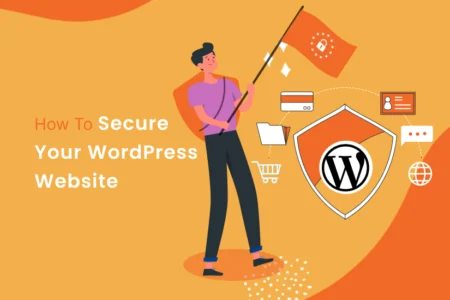
Complete Security Tips: How to Secure Your WordPress Website
Learn the top strategies to protect your WordPress website with our expert guide. Strengthen and secure your WordPress Website now!
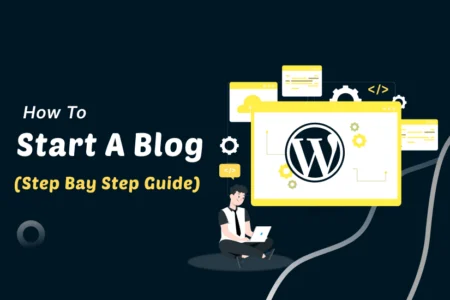
6 Step-by-Step Guide: How to Start a Blog Using WordPress
Learn how to start a blog using WordPress in this comprehensive guide. We cover everything from choosing a domain name and hosting provider to installing WordPress, selecting a theme,...